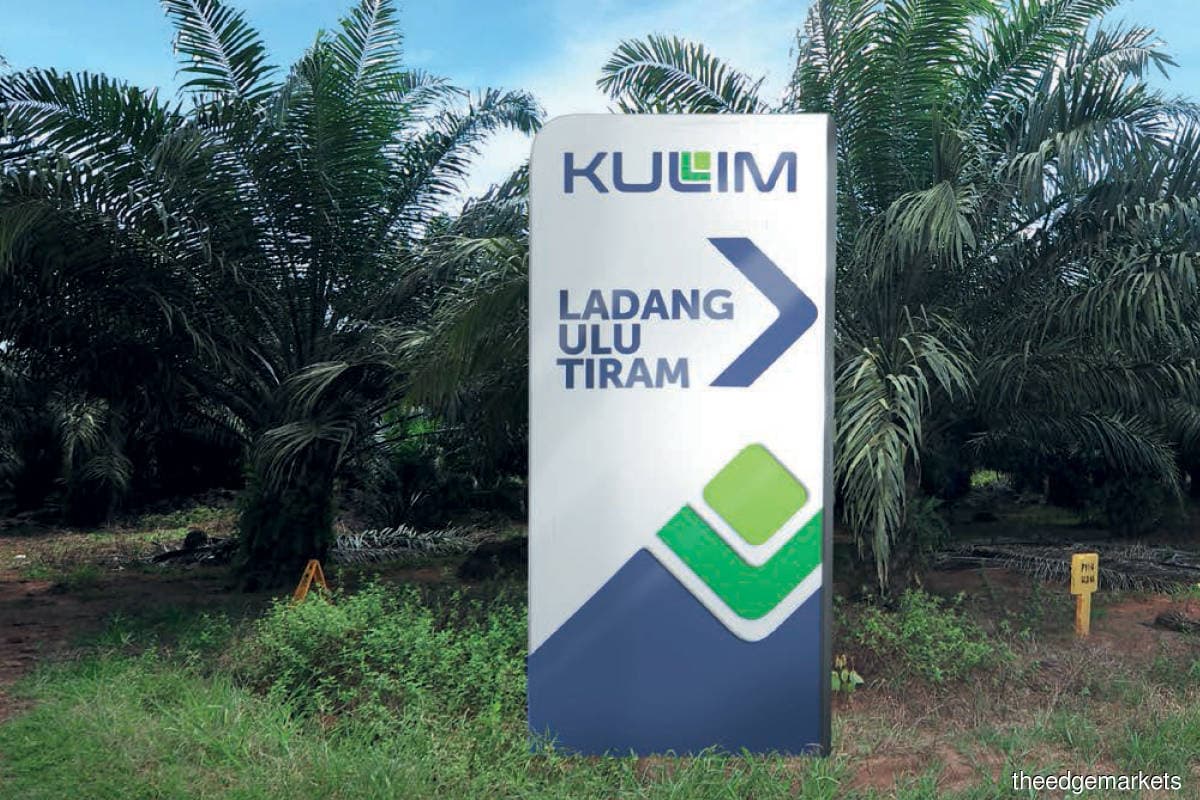
This article first appeared in The Edge Malaysia Weekly on May 16, 2022 - May 22, 2022
JOHOR Corp Bhd (JCorp) is understood to be mulling a flotation of Kulim (M) Bhd on Bursa Malaysia, sources familiar with the matter tell The Edge.
In an email reply to a question on whether JCorp is looking at an initial public offering (IPO) for Kulim, its head of group corporate communications Hasnina Hafiz says, “As a major investment holding institution with core businesses in the Malaysian economy, we are continuously reviewing and assessing our investments. This is with a view to strengthen our investment portfolio.
“As one of the key investors in Kulim, we are committed to improving the value proposition of this investment. Should there be any pertinent announcements to be made, we will do so accordingly.”
At least one source says the plan for an IPO is being hatched, but he has no details. Another person familiar with the matter says he has heard that RHB Investment Bank Bhd has been roped in, but this remains conjecture at press time.
A third source says he has heard of a plan to list Kulim and that JCorp is looking to ride on strong crude palm oil (CPO) prices to get a better valuation for its plantation company.
According to its website, Kulim’s plantation assets are small compared with some of the behemoths on Bursa. It has 63,158ha of plantation land, of which 88% (55,796ha) is located in Malaysia and 12% (7,362ha) in South Sumatra, Indonesia.
Apart from palm oil, Kulim has smaller pineapple, cucumber, coconut and durian farms, among others, but these measure only about 365ha in total. The company also has 7,500 heads of cattle and 220 heads of sheep, but the livestock farming business is still in its infancy and not generating much profit yet.
Checks on CTOS’ website reveal that for its financial year ended December 2020, Kulim suffered an after tax loss of RM461.31 million on the back of RM1.41 billion in revenue. In FY2019, it suffered an after tax loss of RM98.2 million from RM1.21 billion in revenue.
The company was last profitable in FY2018, when it reported an after tax profit of RM32.87 million on the back of RM1.39 billion in sales. It is not clear whether FY2021 was a good year for Kulim.
At end-2020, Kulim had total assets of RM6.14 billion while its total liabilities were pegged at RM3.41 billion. For FY2020, it had retained earnings of RM2.73 billion.
Kulim has had a long and colourful history, having been incorporated in the UK in 1933 as Kulim Rubber Plantations and listed on the London Stock Exchange as Kulim Group in 1970. Subsequently, Kulim (M) acquired Kulim Group and listed the company on what was known as the main board of the Kuala Lumpur Stock Exchange in 1975.
In 2001, Kulim listed New Britain Palm Oil Ltd (NBPOL) on the Port Moresby Stock Exchange in Papua New Guinea (PNG) and London. In 2013, it tried but failed to increase its stake in NBPOL from 49% to 69%, as the Securities Commission of Papua New Guinea felt it was not in the national interest for the company to increase its stake in NBPOL. “The Commission sees that PNG and its shareholders will be marginalised by a foreign company on their own land,” the PNG Securities Commission said back then.
Kulim then hived off its 49% stake in NBPOL to Sime Darby — which had outbid FGV Holdings Bhd and Wilmar International — for RM2.75 billion in August 2014. Flush with cash from this sale, it then announced a special dividend payout of RM1 billion, to be paid to shareholders over two years.
However, considering that NBPOL had 134,600ha of land, Kulim’s remaining plantation assets following the sale were small by comparison.
As a buffer for its earnings, Kulim ventured into the oil and gas industry via EA Technique (M) Bhd, which was listed on Bursa in late 2014. The currently cash-strapped (Practice Note 17) company operates a fleet of tankers and offshore support vessels for the O&G sector. So, Kulim’s O&G venture did not pay off.
In November 2015, Kulim announced a RM2.2 billion privatisation exercise by its parent JCorp, which offered RM4.10 per share for the 38.13% stake it did not own — a handsome 24% premium to the stock’s market price prior to the offer. Kulim’s volume-weighted average price for the six months before the offer stood at RM2.82 per share, meaning that JCorp’s takeover offer came at a premium of 45%.
At the time of the privatisation, Kulim had RM1.74 billion in its kitty, which meant JCorp paid only about RM460 million to take the company private. It is worth noting that JCorp received RM300 million from the special dividend after the sale of NBPOL, which meant it actually privatised Kulim, which was valued at more than RM3.8 billion, for a mere RM160 million.
CPO prices have gained more than 54% year to date. The commodity hit a multi-year high of more than RM7,100 per tonne at end-April, but the price had since retraced to RM6,438 per tonne at press time.
Save by subscribing to us for your print and/or digital copy.
P/S: The Edge is also available on Apple's AppStore and Androids' Google Play.